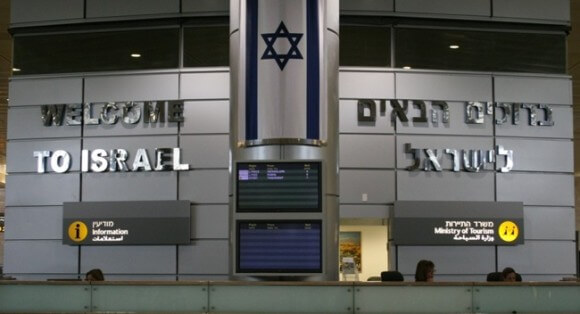In January, a resolution criticizing Israel’s border policies towards academics passed during the Modern Language Association’s (MLA) convention in Chicago. But that was only the beginning of what has turned into an intense, often vitriolic, debate over Israel, Palestine and the role of the MLA in talking about the conflict.
The January resolution on Israel’s denial of entries to academics traveling to West Bank universities passed the MLA’s Delegate Assembly by a vote of 60-53. The measure, which calls on the State Department to “contest Israel’s denials of entry to the West Bank,” then went to the full MLA membership, which numbers 30,000 (though it’s unlikely all the members will vote). The run-up to the voting, which officially ends June 1st, has been characterized by biting debate between academics that are members of the MLA.
One group calling itself MLA Members for Scholars’ Rights has taken the lead in ginning up opposition to the resolution. The group organized an off-site panel discussion alongside Hillel and the Israel on Campus on Campus Coalition during the convention to counter a discussion on the boycott, divestment and sanctions (BDS) movement. Now the group lead by scholars like English professor Cary Nelson is lobbying MLA members to oppose what it says is a misleading resolution. MLA Members for Scholars’ Rights says that the resolution singles out Israel when it is common for countries to deny people entry, and that Israel’s denial of entries are based on a “justifiable cause.” But Israel has denied entry to Palestinian- and Arab-Americans and others by invoking security–often without providing evidence.
Further debate over the resolution has been waged on an internal website for MLA members. But at least some of the discussion was leaked and published last week on Pastebin.
Some of the back-and-forth is mild. Opponents have written that the resolution singles out Israel, and that the MLA should not busy itself with an expressly political resolution. Supporters say it should be in the purview of the MLA to condemn violations of academic freedom and the occupation of Palestine. Bruce Robbins, a Columbia professor who helped author the resolution, pointed MLA members to an article in the Jewish Daily Forward by Hody Nemes reporting that independent experts “confirmed that the problem of foreign academics being denied entry is both real and serious.”
Other debaters are far more pointed, though. June Cummins, who teaches at San Diego State University, linked the resolution to the BDS movement, though the text of the resolution makes no reference to boycotts. “Those of you who see this resolution as ‘benign’ and ‘harmless’ have your heads in the sand. Do you really want the MLA to be linked up, in even a ‘small and mild’ way, to the rhetoric of BDS, which means the rhetoric of removing Jews from Israel?” wrote Cummins.
One comment that has attracted media attention from neoconservative writers came from Elizabeth Jane Ordonez, who teaches in Denver:
Moves to seek justice and opportunity for Palestinians (or to remove obstacles to achieving those goals) are countered by Zionist attack dogs. When the Zionist lobby railroads its way through Congress, universities, and civil society no request is made for equal time for the other side.
Another comment that sparked accusations of anti-Semitism was Alessio Lerro’s statement that “this resolution rightly targets only Israel given the humongous influence that Jewish scholars have in the decision making process of Academia in general.”
Marianne Hirsch, the immediate past MLA president, also joined the debate to criticize the “characterization of any critique of the state of Israel as anti-Jewish or anti-Semitic. No state should be immune from criticism for curtailing academics’ rights to teach and travel, including Israel.” In the run-up to the MLA convention, Hirsch wrote that she was bombarded by letters from pro-Israel advocates, including e-mails “accompanied by well-known photographs of Nazis with signs calling for boycotts of Jewish stores,” which were sent to link the BDS movement targeting Israel with the Nazis.



I think visits of academics to West Bank universities is good for Israel and for Palestine.
James Canning says:
June 1, 2014 at 1:52 pm
“I think visits of academics to West Bank universities is good for Israel and for Palestine.”
i agree james,here is a breakdown of the universities
http://www.aaup.org/article/universities-west-bank-and-gaza#.U4udCnZHK70
OT (relevant threads seem to have closed down for comments), the French police have arrested a jihadi for the Brussels murders:France: Arrest in Brussels Jewish museum shooting.